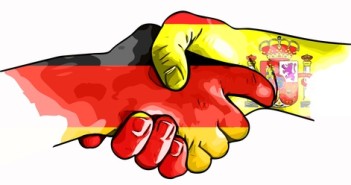Mariano Rajoy, who is widely expected to become Spain’s next Prime Minister, met with German Chancellor Angela Merkel and discussed a possibility that Spain will receive aid reaching 100 billion euros.
In at least two meeting held in Germany, Rajoy discussed his plans to cut €30 billion in government spending and to undertake significant labor reforms.
Regarding the €100 billion aid package, Rajoy doesn’t want it to take the shape of a bailout package and to include external supervision from bodies like the IMF. The money would come out of the EFSF, which has the powers to provide such a loan.

According to the report in  El Economista (original Spanish, Google Translate to English), €50 billion will be used to clean up the troubled toxic assets on banks’ balance sheets. The banks are still struggling with the bust of the housing bubble and are not lending enough.
The other 50 billion will be used for Spain’s autonomous regions, which suffer from higher debts than the central government.
General elections will be held in Spain on Sunday, November 20th. Spanish yields are leaping once again, and this includes also short term debt, such as 2 year bonds.
The ECB might have taken the foot off the bond buying pedal, and perhaps wishes that Rajoy’s PP center-right PP party will win an absolute majority in parliament  – a majority that will enable him to pass stronger and faster reforms.
Is the ECB intervening in Spanish politics? It is possible, especially after the ECB dictated to Berlusconi what to do.



